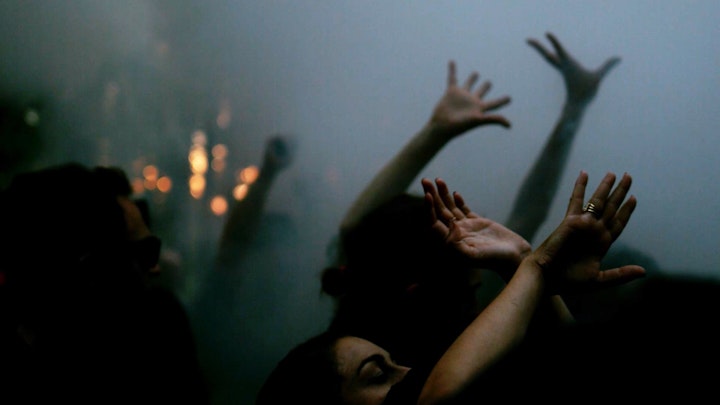PENUMBRA
INSTALLATIONS
What does the past of a distant future look like? A distant future to which humankind will be driven by the unleashed forces of neoliberal capitalism, climate change, and populism? Julian Rosefeldt’s 85-minute film PENUMBRA (2019–2022) is not a work of science fiction. Instead, it points to our current situation, albeit within a fictious framework that paves the way for a paradoxical enigma: who will we be when we are gone? PENUMBRA originates from a film work, planned as a visual backdrop for Robert Schumann’s oratorio, Scenes from Goethe’s Faust, at the opera houses in Antwerp, Ghent, and Montpellier.
For his two key works of German literature, Faust: A Tragedy, Part I and II (1808–1832), Johann Wolfgang von Goethe created a visionary protagonist in the scientist and entrepreneur Dr. Faust. As a character, Dr. Faust anticipated the great issues of our time: capitalism, post-colonialism, the exploitation of nature, and environmental disasters. For the oratorio, Schumann selected a few fragments of Goethe’s masterpiece to compose music for, and for Rosefeldt’s filmic adaptation, the artist fragmented Schumann’s romantic composition to use as a soundtrack.


